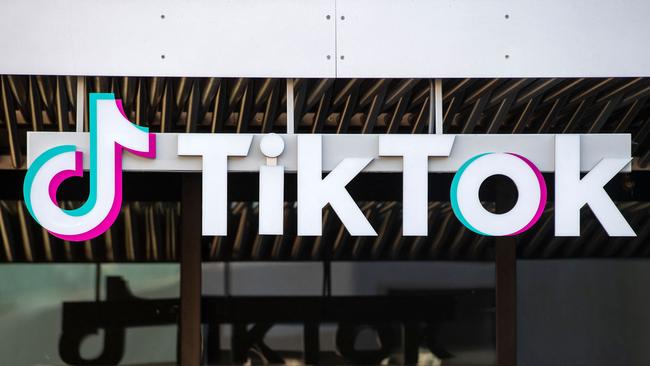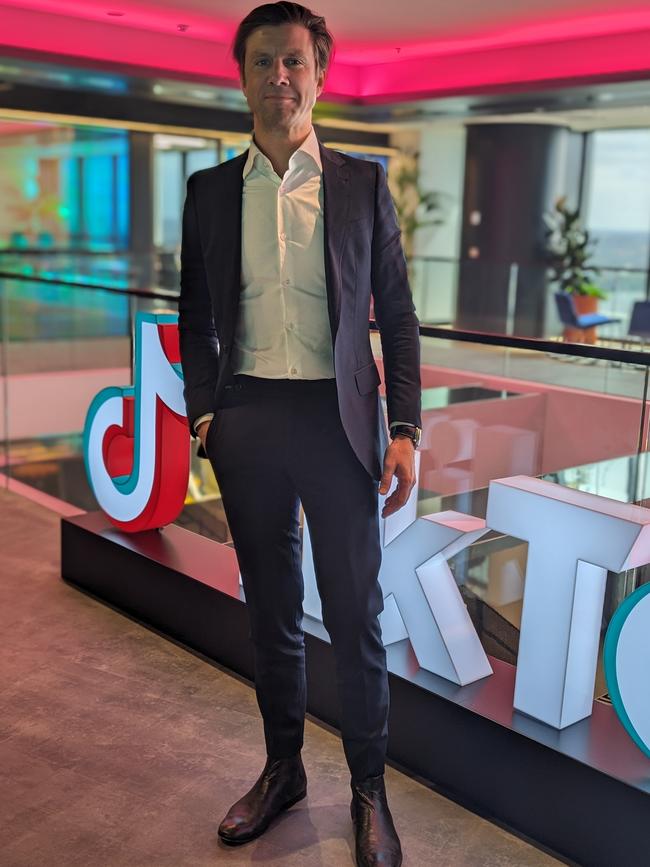Chinese social media platform claims it contributes $1.1bn to Australia’s economy
Despite controversies over security, TikTok insists it’s a good citizen which contributed $1.1bn to the Australian economy last financial year.

Controversial Chinese-owned social media giant TikTok contributes $1.1bn to the Australian economy each year, the platform’s local boss claims.
As its use comes under scrutiny in other countries, Brett Armstrong says new research commissioned by TikTok shows the social media app has become a “critical part of the Australian economy”.
The report comes as TikTok faces a controversial ban in the US, one that if passed would require the company’s US arm to be sold to an American business. It’s a move that Prime Minister Anthony Albanese has ruled out taking in Australia despite the government banning the use of the TikTok app on devices used by its staff.
The TikTok report, undertaken by Oxford Economics, found that Australian businesses brought in $1bn in direct revenue during 2023 after advertising or marketing on the platform. A spokesman for the research firm said that had contributed to about 13,000 jobs across the economy.

TikTok’s position in Australia could no longer be contested, Mr Armstrong told The Australian, adding he believed the platform had become instrumental to modern business.
The app wasn’t so much one for family and friends as it was for discovering people with similar interests, he said.
“When you go into it, you’re not going to see your friends and family, you’re going to see content, entertainment and people across the world that have got interesting content that’s relevant to you,” he said.
“So for a lot of businesses, in a lot of ways, it’s all about tapping into that and telling your story.”
That view seems to be shared widely across the country, with many viewing the platform as one of the few social media operators that still offers a chance of going viral without having to pay to play.
Recent reporting in The Australian has shown that many businesses have taken a chance on just that. One success story belongs to Ali Chebbani, whose pandemic driveway burger operation went viral, growing into a 20-person operation and than a Marrickville restaurant, Chebbo’s Burgers.
As many as 350,000 Australian businesses have taken to TikTok alongside 8.5 million Aussie users, according to the Oxford Economics report. Much of its local user base is between the ages of 16 and 44. Businesses on social media don’t always have a win, and Meta has in recent months come under intense scrutiny from users, including businesses which pay hefty amounts for advertising, for its lack of support when account issues including being hacked are brought up.
TikTok would not share how much it had invested into growing its Australian market but Mr Armstrong said the platform’s new multi-level office in Salesforce Tower in Sydney and the hiring of 250 local staff was evidence of its commitment. “This was one of the proud moments … to be able to continue to invest and grow (our Australian arm),” he said.
Oxford Economics found that about 38 per cent of TikTok users had purchased a product or service seen on TikTok at least once per month. A slightly higher figure of 3.5 million people have visited a restaurant or store they saw on TikTok. When it came to music, about 21 per cent of respondents bought music or concert tickets after discovering a band or song on the platform.
It had also become popular for charities, with about 42 per cent of respondents aged between 35 to 44 having donated to a charity or volunteered. Asked if in light of the report he believed the government should reverse its ban of the platform on staff devices, Mr Armstrong said: “The government has policies around all sorts of products and platforms on their devices. The positive thing is that Prime Minister Albanese has said there were no concerns at TikTok in Australia.”
The TikTok platform, owned by ByteDance, is considering launching a photo-sharing app to compete with Instagram.







To join the conversation, please log in. Don't have an account? Register
Join the conversation, you are commenting as Logout